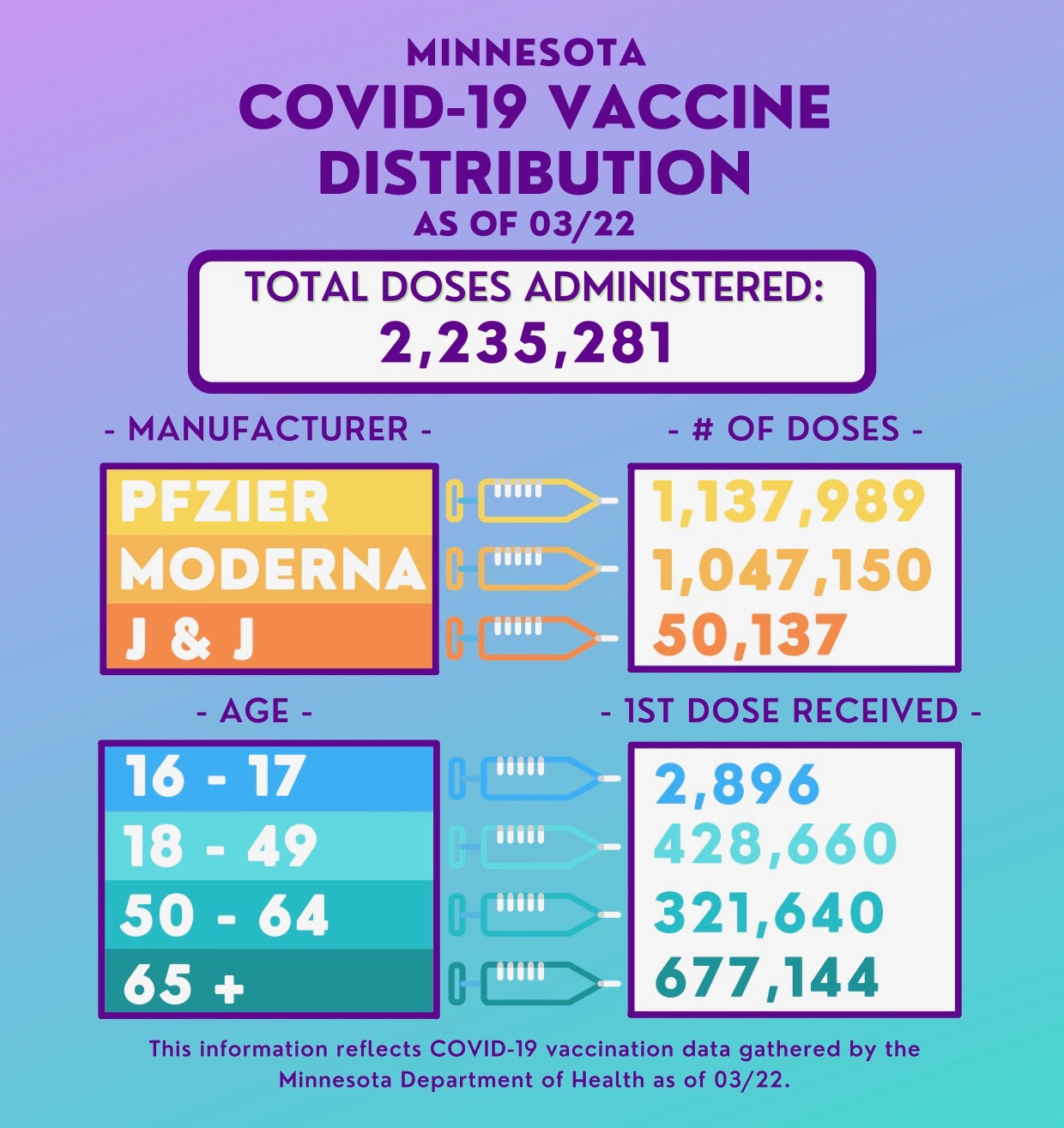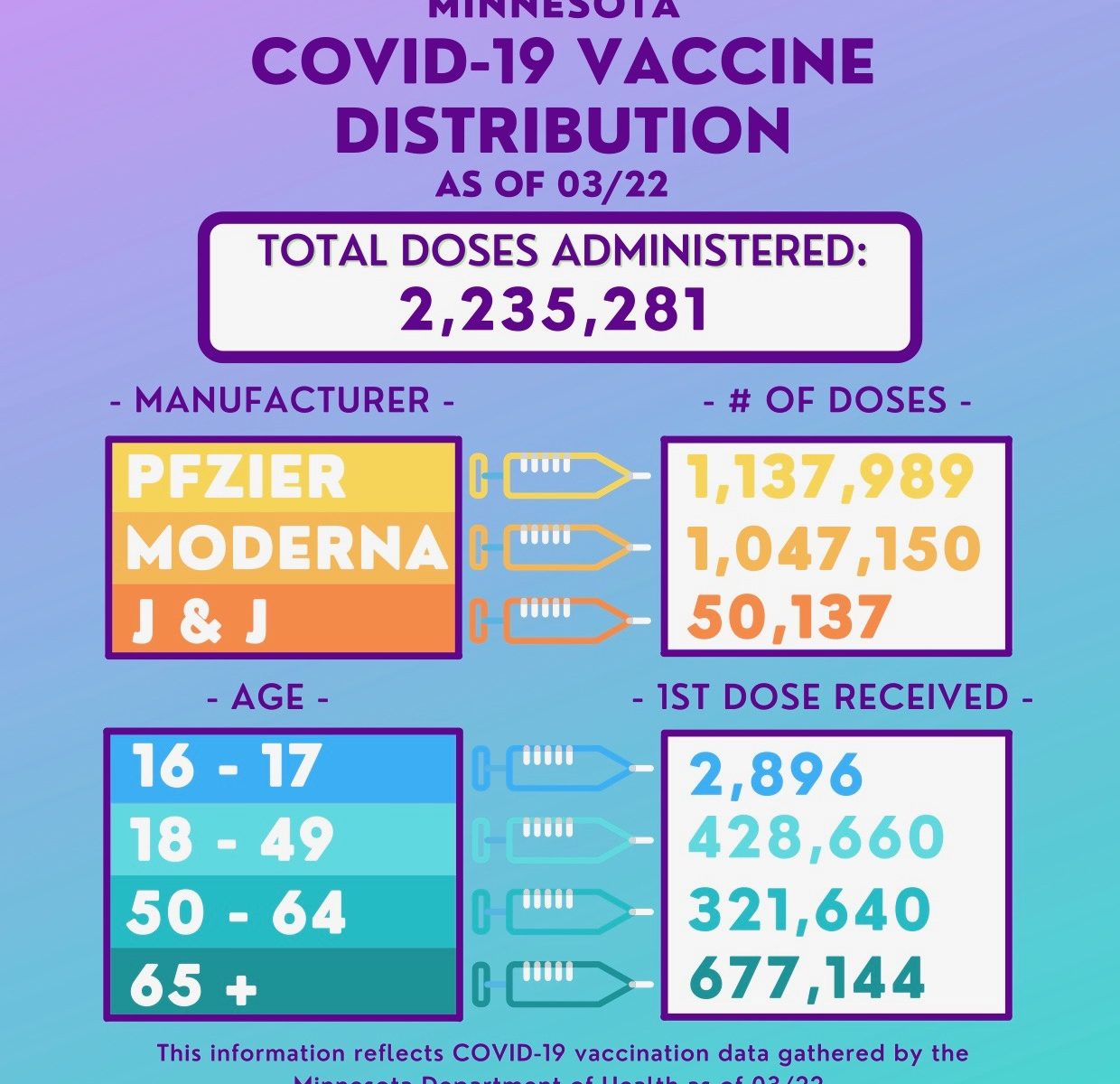
The limited supply of COVID-19 vaccinations has left much of the country waiting to receive shots, and while most college-age students are at the back of the line, some St. Thomas students in certain fields are eligible to receive their vaccines earlier than others.
Young, low-risk adults receiving the vaccine can be found working in healthcare facilities, high-risk work environments or the U.S. Army. Recipients are not guaranteed COVID-19 immunity, however, and with mask-mandates and social distancing measures, they can’t return to pre-pandemic life just yet.
“I still try my best to be as COVID-19 safe as possible, but I think my motives have changed a lot now. It’s more so out of respect for others than for myself, but I’m still being disciplined,” said St. Thomas student Blakke Springob, who works with HealthPartners to administer COVID-19 tests at the Maplewood Mall.
Serious side effects from the vaccine are rare, but some people have felt ill after the shot. For those who develop cold or flu-like symptoms, the effects are generally mild and short-lived.
Springob said she experienced milder side effects from her Pfizer vaccine than she has from her yearly influenza vaccine.
“I had no major side effects except that the area on my arm where they administered the shot was a little bit sore when I was trying to sleep, but nothing that can’t be expected after getting a vaccine,” Springbob said.
University of St. Catherine’s nursing student Madaline Chapmann felt no side effects from the first dose of her Pzier vaccine, but she did experience fatigue, chills and a bad headache for around 12 hours after her second shot.
The protection against COVID-19 outweighed the side effects of the vaccine for Chapmann, whose perspective was that she “would rather deal with these symptoms for 12 hours than deal with COVID-19 for God knows how long.”
Ryan Lee, a St. Thomas student who received the Moderna vaccination as a member of the Minnesota National Guard, said the process was easy and nearly pain-free for him, and it signaled that a return to normalcy was finally within reach.
“I definitely felt a little bit of scrutiny because of how quickly it was rolled out,” Lee said, “but I also felt good about there being a vaccine, and I was excited to not have to worry as much about bringing COVID-19 back to my parents.”
Mostly, Lee said he feels optimistic, because “while there’s going to be a lot of people who don’t want to get the vaccine regardless, and that’s their choice… more people are going to start to get vaccinated and have life become more normal than it is now.”
As for receiving the vaccine during the first wave of administrations, some students do see benefits in their cohort being vaccinated and protected from contracting and spreading the virus.
Chapmann, who will soon work in healthcare facilities, said that though she does feel some guilt for receiving the protection before older adults, she believes it is an important step in slowing the spread of the virus.
“A lot of people ask me if I feel bad and it’s like, yes, I do, but at the same time I’m going to be working in a hospital setting where there are really high risk people,” Chapmann said.
Springob echoed Chapmann’s sentiment, saying, “my initial reaction was that there’s so many people I wish I could give my spot to. I wish I could give it to my parents and so many other people who should be getting it.”
Knowing that wasn’t an option, Springbob still felt that her being vaccinated is “just helping to try and reduce the spread.”
Chapmann shared her perspective on being vaccinated as a young adult and on the vaccine in general, saying she sees it as “a light at the end of the tunnel.”
“I know a lot of people are scared to get it, but it’s kind of like the flu vaccine. It’s going to become normal very soon, and I feel like it’s one of the biggest things we can do to protect those who are most at risk,” Chapmann said.
Lauren Price can be reached at lauren.price@stthomas.edu.

